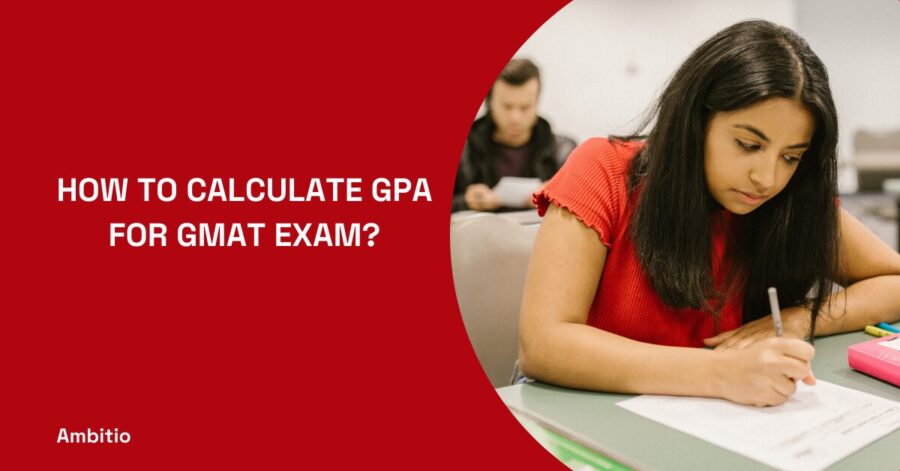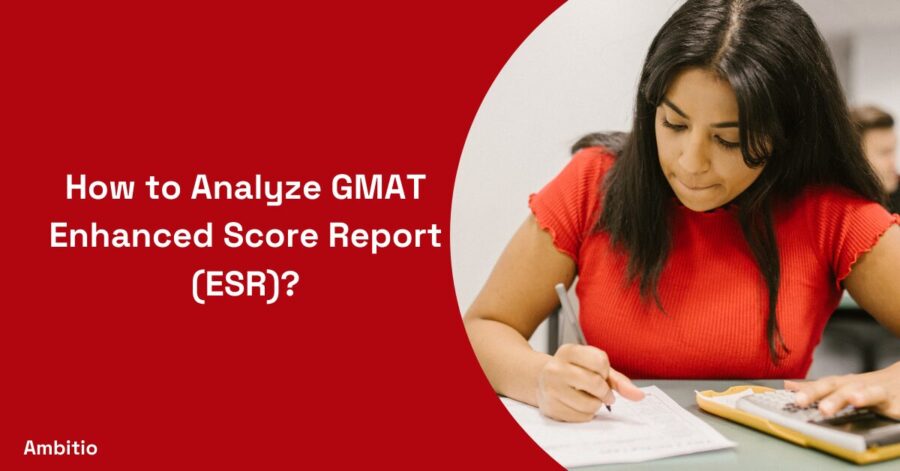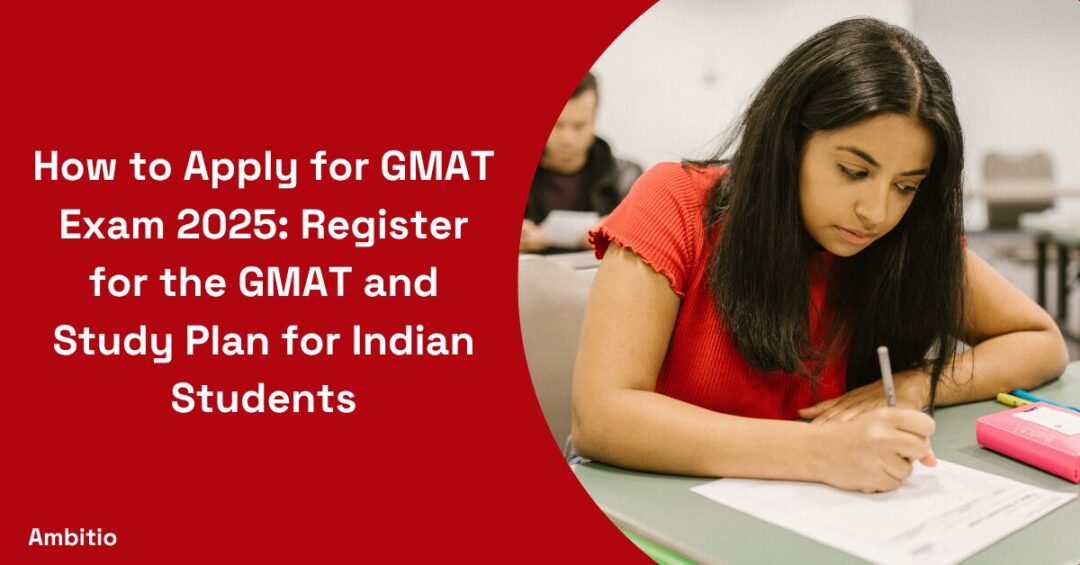4 September 2024
7 minutes read
Is it possible to crack the GMAT without studying ?

Key Takeaways
- While it’s possible to take the GMAT without studying, preparation significantly improves your chances of a competitive score.
- Understanding the GMAT format and practicing under timed conditions are crucial for success.
- With the right resources and strategic focus, you can effectively prepare for the GMAT without formal coaching.
The GMAT, or Graduate Management Admission Test, is a significant hurdle for many aspiring MBA students. Traditionally, success on the GMAT requires extensive preparation, including studying for hours, taking practice tests, and possibly enrolling in a prep course. But what if you could ace the GMAT without traditional studying? This guide will explore unconventional strategies to master the GMAT without spending endless hours poring over textbooks.
What is GMAT ?
The Graduate Management Admission Test (GMAT) is a standardized exam used globally to assess the qualifications of applicants for advanced study in business and management. Administered by the Graduate Management Admission Council (GMAC), the GMAT evaluates skills in analytical writing, integrated reasoning, quantitative reasoning, and verbal reasoning.
These skills are deemed essential for success in business school and professional management roles. Scores from the GMAT are widely used by business schools as a key component of the admissions process for MBA and other graduate management programs.
Is preparation truly necessary for the GMAT?
The GMAT typically requires preparation, especially as a beginner to achieve a competitive score. The test assesses various skills, including analytical writing, integrated reasoning, quantitative reasoning, and verbal reasoning. Here are a few reasons why preparation is essential:
Familiarity with the Test Format
Understanding the structure and types of questions that are asked in the GMAT question paper helps reduce anxiety and improves efficiency during the test. Using resources like the official guide can familiarize you with what to expect when you take the GMAT.
Skill Enhancement
The GMAT tests specific skills that may need refreshing or improvement, such as advanced math concepts in the Quant section or critical reasoning in the Verbal section. Studying for the GMAT can help you brush up on these areas.
Time Management
Practicing under timed conditions helps in managing the test’s time constraints effectively. Taking practice tests can simulate the actual test environment and help you master GMAT time.
Strategic Approach
Preparation teaches test-taking strategies, like when to guess or skip a question, which can significantly impact your GMAT score. Learning strategies for different sections, such as sentence correction in the Verbal section or quantitative problems in the Quant section, is crucial.
Practice Makes Perfect
Regular practice through mock tests and GMAT sample questions can improve accuracy and speed. Consistent GMAT prep with practice tests helps identify weaknesses and track progress over time.
While some people may perform well with minimal preparation, most benefit from structured study to maximize their potential and achieve their desired scores.
Is it possible to take the GMAT without studying?
While it is technically possible to take the GMAT without studying, it is generally not recommended if you want to achieve a competitive score. The GMAT tests specific skills in analytical writing, integrated reasoning, quantitative reasoning, and verbal reasoning.
Familiarity with the test format, effective time management, and strategic approaches to different question types are crucial for success. Preparation, including taking practice tests and reviewing the official GMAT test guide, helps enhance these skills. Without studying, you risk lower performance and a less competitive score, which can impact your chances of admission to top MBA programs.
GMAT without coaching
It’s entirely possible to take the GMAT without formal coaching and still perform well. Many students successfully prepare on their own using a variety of resources. Here’s an in-depth look at each section of the GMAT format and tips for self-study.

Analytical Writing Assessment (AWA)
This section requires you to write a single essay in 30 minutes. You’ll analyse an argument and critique its logical soundness.
- Skills Tested: Critical thinking, logical reasoning, and writing clarity.
- Self-Study Tips:
- Practice Writing: Regularly write practice essays. Focus on structuring your essay clearly, with an introduction, body paragraphs, and a conclusion.
- Review Samples: Study high-scoring sample essays to understand what the GMAT graders are looking for. Analyse the structure, argument development, and clarity.
- Use online platforms like GMAT Club or writing tools such as Grammarly to get feedback on your essays. This can help identify areas for improvement.
Integrated Reasoning (IR)
First, get to know the syllabus for GMAT Integrated Reasoning(IR). This section lasts 30 minutes and includes 12 questions. It tests your ability to evaluate information presented in multiple formats and from multiple sources.
- Skills Tested: Data interpretation, multi-source reasoning, graphics interpretation, and table analysis.
- Self-Study Tips:
- Use Official Guides: The GMAT Official Guide provides practice questions that closely resemble the actual test.
- Online Resources: Utilize free online resources and practice tools specifically designed for Integrated Reasoning.
- Practice Questions: Focus on practicing different types of IR questions. Spend time understanding how to interpret graphs, analyse tables, and synthesize information from multiple sources.
Quantitative Reasoning (Quant)
Quant comes under the GMAT math division. This 62-minute section consists of 31 questions. It measures your ability to reason quantitatively, solve mathematical problems, and interpret graphical data.
- Skills Tested: Arithmetic, algebra, geometry, and data analysis.
- Self-Study Tips:
- Brush Up on Math Basics: Ensure your foundational math skills are solid. Review high school math topics, including algebra, geometry, and basic arithmetic.
- Practice Problems: Use practice problems from the GMAT Official Guide and other reputable sources. Focus on problem-solving and data sufficiency questions.
- Online Tutorials: Utilize free online tutorials and videos to understand complex concepts.
Verbal Reasoning (Verbal)
This 65-minute section has 36 questions. It measures your ability to read and understand written material, reason and evaluate arguments, and correct written material to conform to standard written English.
- Skills Tested: Reading comprehension, critical reasoning, and sentence correction.
- Self-Study Tips:
- Read Regularly: Engage with complex texts regularly, such as articles from The Economist, scientific journals, and literary fiction. This will improve your reading comprehension skills.
- Practice Critical Reasoning: Work on GMAT critical reasoning questions to enhance your ability to evaluate arguments. Analyse arguments in opinion pieces or editorials.
- Sentence Correction: Study grammar rules and practice sentence correction questions. Focus on common GMAT grammar issues, such as subject-verb agreement, parallelism, and modifiers.
What Is the Average GMAT Score Without Studying?
The average GMAT score without studying can vary widely, but it typically falls below the competitive range required by top MBA programs. Most unprepared test-takers score around 400-500, significantly lower than the average score of 700+ often needed for admission to prestigious business schools.
The GMAT assesses skills in analytical writing, integrated reasoning, quantitative reasoning, and verbal reasoning, all of which benefit from focused preparation. Without studying, familiarity with the test format and the ability to manage time effectively are also compromised, resulting in lower overall performance.
Truth About Scoring High on the GMAT Without Studying
Scoring high on the GMAT without studying is rare and usually attributed to individuals with strong foundational skills in quantitative reasoning, verbal reasoning, and analytical writing. These individuals often have extensive backgrounds in fields that align closely with the GMAT content, such as finance, engineering, or literature.
Their ability to perform well without dedicated GMAT prep is exceptional and not the norm. Most test-takers benefit significantly from structured study plans, practice tests, and targeted preparation to achieve a competitive GMAT score, making formal preparation a crucial step for the majority of MBA aspirants.
How to ace the GMAT without hours of tedious studying?
Beating the GMAT without studying for endless hours is possible with the right strategy. Instead of taking the GMAT without any preparation, focus on efficient methods to prepare for the GMAT.

- Develop a Study Plan: Create a GMAT study plan that covers all sections, including GMAT Verbal and GMAT Quant topics. Use the GMAT Official Guide to familiarize yourself with the types of questions on the actual GMAT test.
- Use Online Resources: Engage with GMAT Club for tips and resources. These platforms offer valuable insights from other test-takers.
- Practice Smartly: Take practice tests regularly. Start with an official GMAT practice test to gauge your baseline. Focus on practice questions to improve your skills in algebra, reading comprehension, and critical reasoning.
- Target Weak Areas: Identify your weaknesses through practice tests and focus on those areas. For example, if your verbal score is low, concentrate on GMAT verbal topics and verbal questions.
- Leverage Short Study Sessions: Instead of long study hours, use short, focused sessions. This helps maintain concentration and retention.
- Take Care of Logistics: Plan your test day well in advance. Ensure you’re ready to take the actual GMAT exam by taking official practice tests.
- Consider a GMAT Tutor: If you’re planning to maximize your score, a GMAT tutor can provide personalized guidance.
By following these steps, you can beat the GMAT without spending hours poring over textbooks and achieve a good score, increasing your chances of admission to top MBA programs.
Conclusion
While some might explore the possibility of taking the GMAT without any preparation, it’s not advisable if you aim to beat the GMAT and secure a place in a top business school. Thorough preparation, including taking full-length practice tests and using official resources, is essential for achieving your target score on this important admission test.
Even if you’re planning to take the GMAT within a short timeline, investing a minimum of one month of preparation can make a significant difference. By preparing for the GMAT diligently, you increase your chances of answering questions correctly, achieving a high score, and gaining admission to your desired MBA program.
Master the GMAT and pave your way to MBA excellence with Ambitio. Our platform offers in-depth study materials, practice questions, and tailored feedback, focusing on the areas you need to strengthen to boost your score and secure your place at a top business school.
FAQs
How can I prepare for the GMAT in a short time?
Focus on smart study strategies, practice tests, and targeting weak areas to maximize efficiency in a short time.
Can you improve your GMAT score without traditional studying?
Yes, by using efficient study methods, practicing under test conditions, and focusing on weak areas.
Is it worth retaking the GMAT if I didn’t study the first time?
Yes, retaking the GMAT with proper preparation can significantly improve your score and chances of admission.
Is it possible to score 700+ on the GMAT without studying?
Scoring 700+ without studying is extremely rare and typically requires a strong background in related fields like math or critical reasoning.
How much does studying affect GMAT scores?
Studying can drastically improve your GMAT score, often by 100 points or more, depending on the effort and preparation.
What are the risks of taking the GMAT without preparation?
The main risks are scoring low and reducing your chances of admission to competitive MBA programs.

You can study at top universities worldwide!
Get expert tips and tricks to get into top universities with a free expert session.
Book Your Free 30-Minute Session Now! Book a call now




























